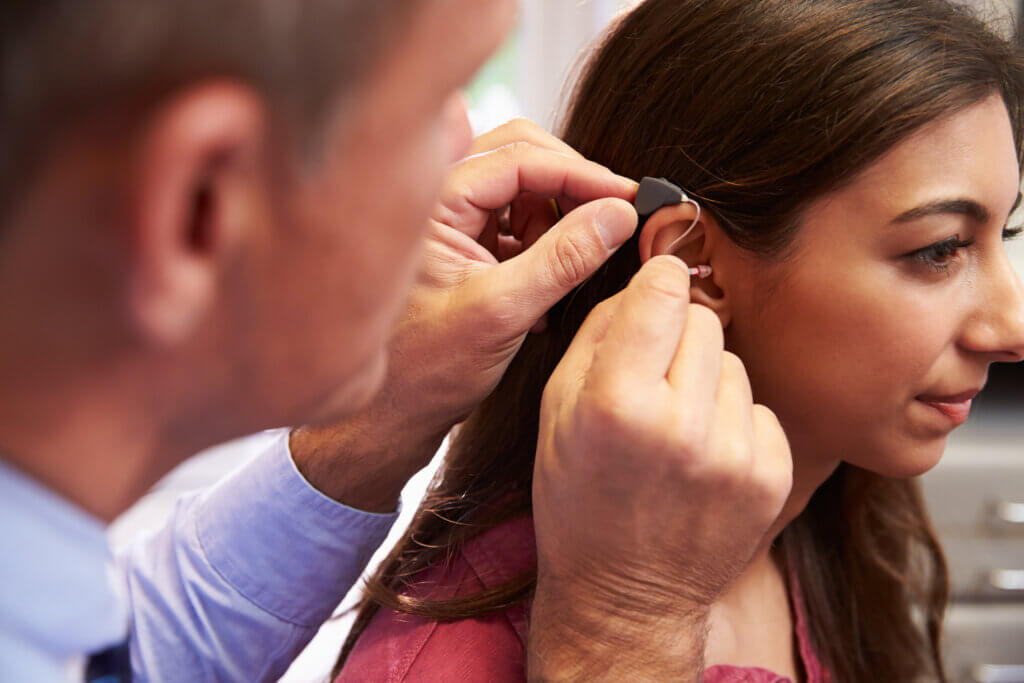Check out the real story behind these common hearing loss myths:
MYTH: Only a few people are truly hearing impaired; the statistics don’t apply to me or those close to me. | Fact: With 28 million reporting hearing loss in the US alone, or one in 10 people, odds are good that you or someone you know is indeed affected by hearing loss especially if you’re age 60 or older. |
MYTH: If I did have a hearing impairment, I’d certainly know about it. | Fact: The truth is, hearing loss happens gradually and the signs are subtle at first. Our own built-in defenses and ability to adapt make it difficult to self-diagnose. A simple hearing test can help you gain insight with a more definitive answer. |
MYTH: Most hearing problems can’t be helped. | Fact: 30 or 40 years ago, that was true. Today, 90% of hearing loss is very responsive to treatment in the form of technically advanced hearing instruments. |
MYTH: If you’re hearing impaired, it just means sounds aren’t loud enough. | Fact: Hearing isn’t only about loudness. Typically, hearing loss has more to do with the frequency of the sound that is, its pitch rather than its loudness. When hearing loss occurs, it’s harder to hear higher pitches especially when there is background noise to complicate the picture, such as conversation in a noisy restaurant. That’s why amplifying incoming sounds alone isn’t as effective in treating hearing loss as amplifying voice over background noise. |
MYTH: Living with hearing loss is not a big deal. | Fact: There are many psychological effects to hearing loss, including frustration, withdrawal, and depression. Trouble communicating with others creates a strain on relationships and a loss of esteem. It’s far better to deal with hearing loss than to pretend it isn’t happening or to ignore the effect it is having on those around you. |
MYTH: Hearing instruments are obvious and unattractive. | Fact: While it’s true that hearing instruments don’t enjoy the fashion status of a pair of glasses, new technology has made these devices remarkably discreet. Many people can wear instruments that are either tucked well inside the ear or almost completely hidden in the ear canal. Behind-the-ear styles are often disguised by hairstyles. |
MYTH: Hearing loss and hearing instruments are a sign of old age. | Fact: Things are changing. Many of the baby boomers who are experiencing hearing loss will undoubtedly invest in better hearing sooner than later. We at Hearing Institute of Ontario believe that doing nothing to help yourself may be seen as a more obvious sign of old age than the problem itself. |
MYTH: Good hearing instruments are prohibitively expensive. | Fact: Better hearing through technology is within the reach of most people. The real issue is quality of life, and what it’s worth to you. While good hearing instruments are seen as expensive, putting a price on a better life experience is hard to do. You must weigh the benefits and make your own decision. However, you choose to look at it, treating hearing loss and enjoying the benefits is still relatively inexpensive compared to treating most health problems |
MYTH: Hearing instruments don’t work. | Fact: Hearing instruments won’t restore lost hearing or stop the progression of age- or noise-related hearing loss. And because hearing is as much a function of the brain as it is the inner ear, hearing aids aren’t the whole story in hearing better. But smart new technologies, including the ability to amplify sound selectively, do help most people to hear better in most situations. Even so, it needs to be said that no hearing instrument, no matter how sophisticated, will work unless you are willing to wear and adapt to it. |









